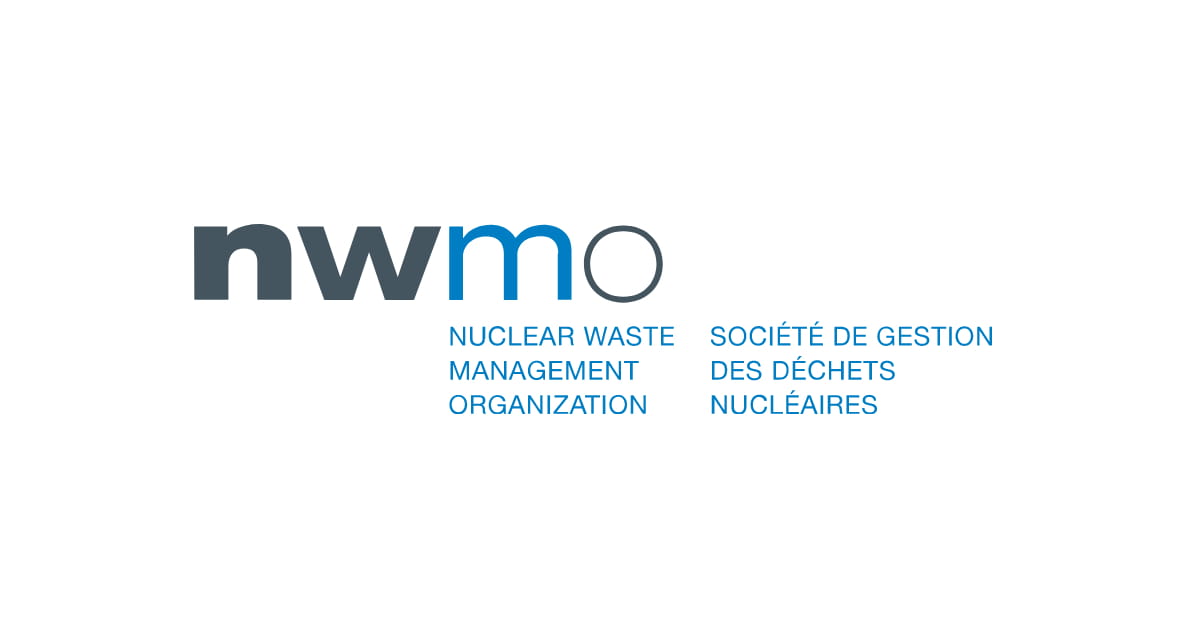Huron-Kinloss and South Bruce will continue to more detailed study; five communities recognized for leadership
TORONTO, December 2, 2014 -- The Nuclear Waste Management Organization (NWMO) has completed the first phase of preliminary assessment for three communities in Bruce County, Ontario that expressed interest in learning about Canada’s plan for the long-term management of used nuclear fuel.
Based on work undertaken collaboratively with each community, the Municipality of South Bruce and the Township of Huron-Kinloss are both assessed as having strong potential to meet site selection requirements and have been identified for further study. The Municipality of Brockton was not selected to be the focus of more detailed study.
In January 2014, assessment findings were shared with the communities of Arran-Elderslie and Saugeen Shores. Based on these interim technical findings, it was determined that further study was not warranted and preliminary assessment studies were concluded in these areas.
“Through their leadership, each of these communities has advanced this major national project on behalf of all Canadians,” said Kathryn Shaver, Vice-President of APM Engagement and Site Selection at the NWMO. “As we prepare for increasingly detailed field studies and engagement, we need to narrow our focus to areas with strong potential for meeting strict safety requirements and for the project to align with the community’s long-term vision.”
Preliminary findings do not confirm technical suitability and safety of any site, and at this early point in the process no community is asked to confirm its willingness to host the project. These findings do not affect work ongoing in 11 other Ontario and Saskatchewan communities involved in the site selection process.
Recognizing Community Leadership
At this milestone in the process, the NWMO is recognizing the significant contributions of all five Bruce County communities that have participated in the process by providing $400,000 to each upon establishment of a Community Well-Being Reserve Fund.
“Each of these communities has helped design and lead dialogues to ensure important questions about safety are asked and learning continues,” said Ms. Shaver.
Administered by the communities, these funds support continuing efforts to build community sustainability and well-being. Examples of activities the fund could support include projects, programs or services that benefit community youth or seniors, community sustainability, energy efficiency or economic development initiatives. Other communities engaged in the process have been similarly recognized upon completion of their Phase 1 studies.
Background and Next Steps
Preliminary Assessments are the third of nine steps in a multi-year process for evaluating potential suitability of communities to host a deep geological repository for Canada’s used nuclear fuel and an associated Centre of Expertise. Phase 1 assessments evaluated in a preliminary way the potential for an area to meet or exceed strict technical requirements, and for the project to align with the community’s long-term goals and vision.
For communities that continue, the next phase of work involves more intensive community learning and engagement. Work will take on a broader focus to include First Nation and Métis communities in the area as well as neighboring municipalities.
Preliminary fieldwork will also begin, including geological surveys, and at later date, limited borehole drilling, to further assess geology and site suitability against technical safety requirements.
As individual studies are completed, the NWMO will continue to narrow its focus to areas with strong potential to be suitable for hosting a repository. Ultimately, the project will only proceed at a site that can safely contain and isolate used nuclear fuel, and with the involvement of the interested community, First Nation and Métis communities in the area and surrounding municipalities working together to implement it.
It is expected to take several more years to complete the necessary studies to identify a preferred site and an informed and willing host. Communities may choose to end their involvement at any point during the site evaluation process, until a final agreement is signed, subject to all regulatory requirements being met and approvals received.
About the NWMO
The purpose of the Nuclear Waste Management Organization (NWMO) is to develop and implement, collaboratively with Canadians, a management approach for the long-term care of Canada’s used nuclear fuel that is socially acceptable, technically sound, environmentally responsible and economically feasible. The NWMO was created in 2002 by Canada’s nuclear electricity producers. Ontario Power Generation Inc., NB Power Nuclear and Hydro-Québec are the founding members, and along with Atomic Energy of Canada Limited, fund the NWMO’s operations. The NWMO operates on a not-for-profit basis and derives its mandate from the Federal Nuclear Fuel Waste Act, which came into force in November 2002.
-30-
QuotesHuron-Kinloss Mayor Mitch Twolan
“Used nuclear fuel is a reality that our generation must take responsibility for,” said Mayor Mitch Twolan. “Huron-Kinloss is looking forward to the more detailed study ahead of us. At the end of the day, the community will decide whether hosting a repository is the right thing for us and, if so, how we proceed.”
South Bruce Mayor-Elect Robert Buckle
“I look forward to working with the community and the NWMO to learn more about our potential for hosting a deep geological repository and what benefits and challenges it might bring to our area,” said Mayor-Elect Robert Buckle. “The nuclear industry is an important part of Bruce County’s economy and way of life. Used nuclear fuel exists in Bruce. South Bruce is in a leadership position by learning about Canada’s plan for its long-term management.”
Brockton Mayor Dave Inglis
“While there is uncertainty in our community about whether hosting a repository is the right thing for us, we understand that used nuclear fuel exists in our region,” said Mayor Dave Inglis. “Whether it remains safely managed in Bruce County, or is moved to another location in Canada, our community will be impacted. The outcome of the Phase 1 Preliminary Assessment for Brockton demonstrates that the NWMO site selection process is working.”

